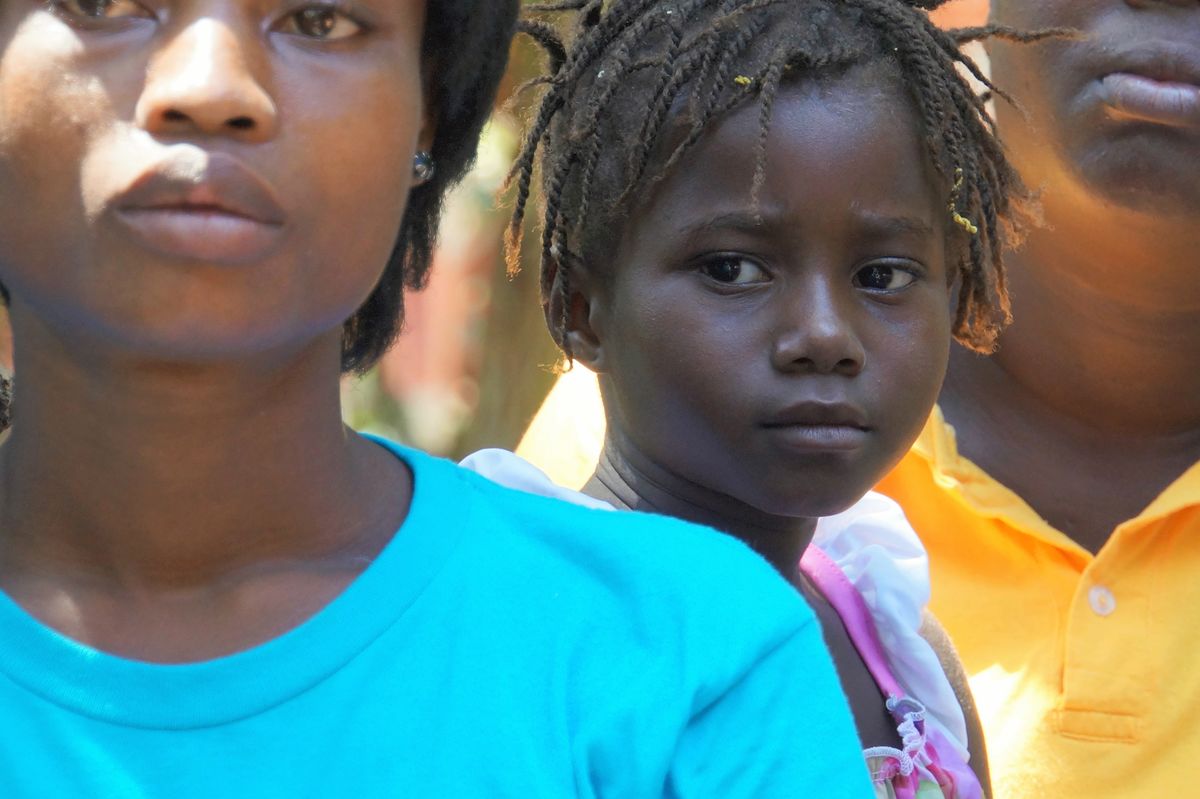World Health Day: The Role of Women’s Empowerment in Improving Community Health

What better way to celebrate World Health Day than to recognize the critical role of women in community health! The work of WomenStrong International in Borgne underscores in striking ways that a mother’s health is central to that of her family and her community, especially in resource stressed areas like the commune of Borgne in northern Haiti.
S.E.E. Fanm (Sante/health. Edikasyon/Education. Ekonomi/Economic development for Fanm/women), the women-centered program launched in collaboration with WomenStrong, is the result of deep, on-going listening, observations, and dialogue.
“A mother’s health is central to that of her family and community.”
S.E.E. Fanm accompanies women as they seek to lead safer, more fulfilled and healthier lives, and recognizes that health, education and access to economic opportunity are intertwined needs that have to be addressed concurrently. This approach ensures that programs are rooted in local culture and realities that leads to sustainable change. We learned these lessons over 22 years of work in Borgne; we faltered when we didn’t really listen or take time to decipher and appreciate local culture. The following experience illustrates what I mean and show how a casual observation led to the development of what has become one of S.E.E. Fanm’s signature programs.
A few years ago, as we crossed a river on our way to visit a cholera treatment center, we noticed a large group of women doing laundry in the river, a traditional practice in Haiti following a death. Friends and family come after a funeral to help women in the grieving household clean and wash bedding and clothes. We learned that the deceased had succumbed to cholera. The women were washing contaminated clothes in the river and so were spreading disease to people living downstream.
We needed an effective way to discourage the practice, but simply telling the women to stop was not good enough.
After some bwase lide(brainstorming Haitian style), Jean-Ronald Pierre, then a Community Health Worker, commented that the practice needed to be understood in a larger context and that it was important to train women to understand why washing contaminated clothes in the river was dangerous to their health and to the health of their families and community.
“Jean-Ronald Pierre”
He proposed gathering together a group of women in his habitasyon (region), to examine with them why the practice was harmful and to come up with solutions.
With the green light to pilot an experimental Mothers’ Club, his first attempt quickly taught us that these women wanted to learn many things—how to improve sanitation and prevent cholera, but also how to protect themselves and their families from other diseases, how to have healthy pregnancies and safe births, ways to improve newborn survival and actions to avoid malnutrition in their children.
News spread rapidly, and women in other areas of the commune wanted to be part of a Mothers’ Club! The following year, with support from WomenStrong, S.E.E. Fanm launched seven Mothers’ Clubs. We then faced another barrier: there were no qualified women to lead these clubs, and the task fell on Jean-Ronald and the other members of S.E.E. Fanm’s Outreach Team—all men.
This challenge translated into an opportunity to train a cadre of women leaders.
S.E.E. Fanm selected 21 dynamic women to undergo a two-year leadership program to become animatris, community organizers, and gradually replace the animate, male community organizers, as club leaders. The animatris are now in their second year of training and already playing a significant role in their communities. They assist animate as trainers of Mothers’ Clubs, they lead community education programs, mentor small groups of women in their villages, assist with adolescent groups and support the Women’s Health Mobile Clinics and adult literacy programs.
“Animatris share health information with women throughout the commune of Borgne.”
They also are involved in organizing and managing economic activities with groups of women, and keeping abreast of events in their communities. The animatris will graduate in June and will take their place among the leaders of the commune.
The Mothers’ Club program is an example of constructive and sustainable change for women in Borgne.
In June 2015, 210 women graduated from the program; this year, there are 420 women in eight Mothers’ Clubs! Empowered by their experience, Mothers’ Clubs graduates are agents of change who pass on their knowledge to other women and who play an important role in improving health in their communities.
“Women sharing ideas at Mothers’ Club meeting.”
The Mothers’ Clubs illustrate that S.E.E. Fanm is much more than a program to empower women; they represent a movement that gives voice to women and fulfills WomenStrong’s mission of accompanying women on the journey to creating healthier families and communities.
They also illustrate another firmly held tenet of S.E.E.-Fanm and WomenStrong: that development is a process that should be anchored in meaningful dialogue, respectful relationships, and values that reflect local knowledge and aspirations.

